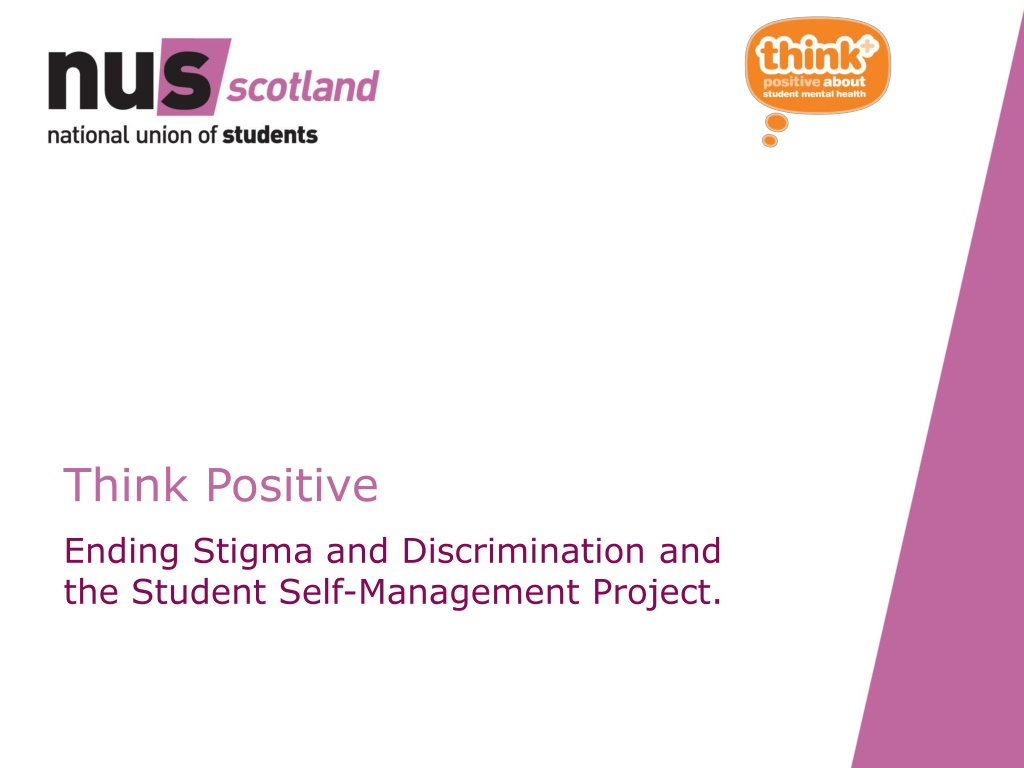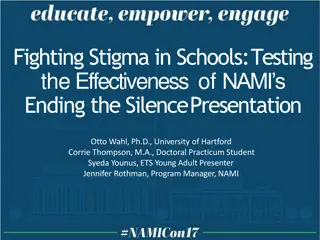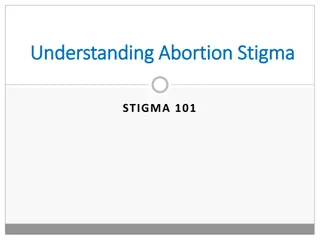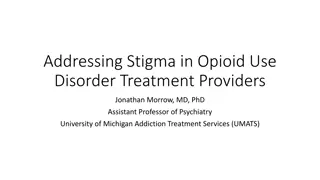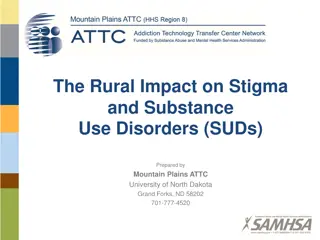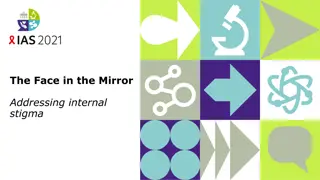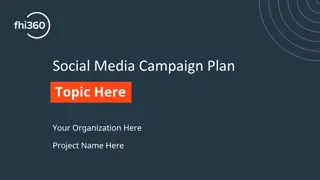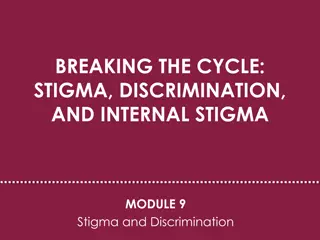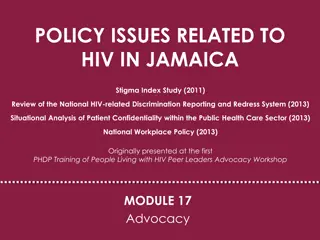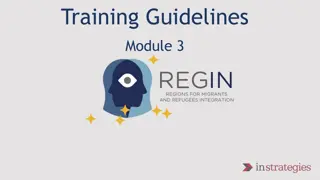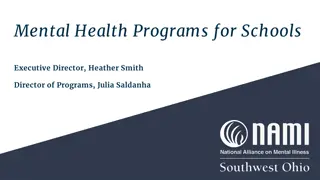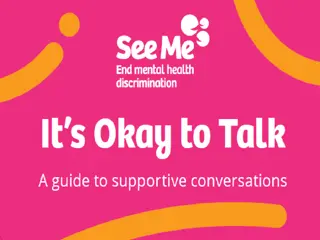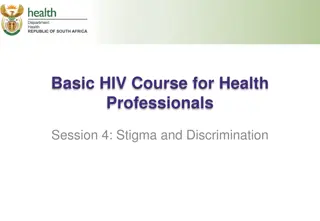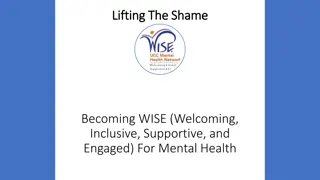Ending Stigma and Discrimination in Student Mental Health Project
Think Positive is a Scottish Government-funded project at NUS Scotland aiming to improve student mental wellbeing and tackle the stigma associated with mental health issues among students. Through surveys and research, they discovered instances of unfair treatment, impacting students' lives and worsening mental health issues. The project aims to raise awareness, provide guidance, and promote reasonable adjustments to support students with mental health conditions, addressing the negative impacts of stigma and discrimination in educational settings.
Download Presentation

Please find below an Image/Link to download the presentation.
The content on the website is provided AS IS for your information and personal use only. It may not be sold, licensed, or shared on other websites without obtaining consent from the author. Download presentation by click this link. If you encounter any issues during the download, it is possible that the publisher has removed the file from their server.
E N D
Presentation Transcript
Think Positive Ending Stigma and Discrimination and the Student Self-Management Project.
What we do: Think Positive is a Scottish Government funded student mental health project at NUS Scotland. The project works to improve student mental wellbeing and tackle the stigma attached to mental ill health.
Ending Stigma and Discrimination What s it all about? Working with students across Scotland we know that stigma and discrimination at universities and colleges is something that happens too often.
What we did We asked students: Have you been treated unfairly due to your mental illness? What happened? How did this impact on your life?
We discovered Students who had been refused time off to attend therapy or other appointments associated with their mental health Other inflexible approaches were noted- ultimatums and long processes to validate absences Discussions about mental health not welcomed Little or no attempts to make reasonable adjustments for those experiencing difficulty
The impact of Stigma and discrimination Worsen mental health problems Delay in seeking help/treatment and recovery Lower attainment Not completing courses Unemployment Relationship breakdown Poorer housing Social isolation Poorer physical health
The impact Too embarrassed to go back to classes Having to argue was exhausting on top of illness Made me feel even weaker than I already felt I had headaches, stomach pain, stress It was stressful not being able to complete work on time and not being allowed an extension
What we did Taking this information: We created a guide for staff and students to recognise discrimination, understand equality and become aware of the steps to make reasonable adjustments Mental health conditions lasting or those expected to last 12 months or more are considered a disability and protected under the Equality Act and therefore accommodating reasonable adjustments is a legal duty
Self-management Project We also wanted to look at how students self-manage their mental health and what helps and what hinders them doing so. We surveyed 50 students and carried out workshops with 30 to find out what worked for them. This also allowed us to pick apart the various factors which can have a negative effect on students mental health and wellbeing and thereby their ability to participate fully in student life.
What helps and what doesnt Friendships Extracurricular activities University/college formal supports Routine, including eating and sleeping Supportive and understanding staff Organisation and planning well Flexibility in course structure Interest in subjects studied
What helps and what doesnt Managing time Exam or assessment stress Loneliness Housing/accommodation issues Finance issues Issues related to sleep Bullying Stigma and discrimination Friendships Extracurricular activities University/college formal supports
Case Study This case study highlights stigma, discrimination and self management
What can you do? Make a commitment Think about what you can do to end stigma and discrimination in your university or college? What is already in place? Can you challenge people who make stigmatising comments? Do you recognise the signs of distress?
Resources Visit our new Think Positive website to find out more about our work and keep up to date with current projects. Think Positive About Student Mental Health Here you will find links to our Ending Stigma and Discrimination and Self-Management resources.
Thanks thinkpositive@nus-scotland.org.uk
